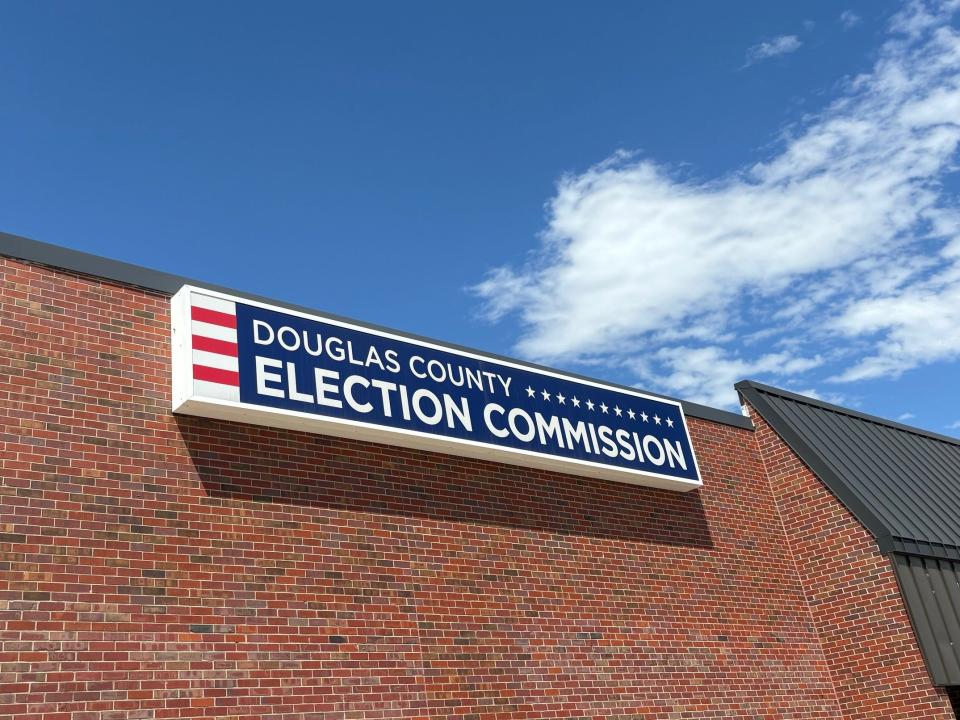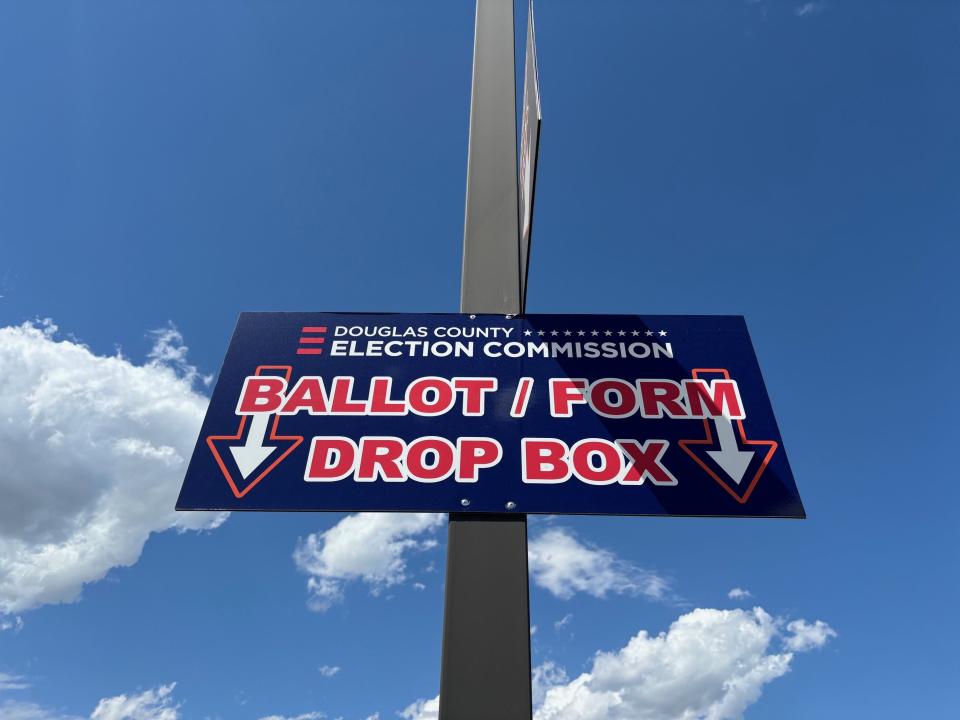States are grappling with recruiting poll workers. This Nebraska county drafts them.
As states across the country are facing poll worker shortages and are figuring out how to recruit people to work elections, Nebraska has its own special tool: a poll worker draft.
Along with the Cornhusker State's unique electoral split vote system and its unicameral legislature, another purely Nebraska gem is its "poll worker draft," where counties can call on random citizens to work at polling locations on election days.
Nebraska is the only state in the country to draft poll workers, according to the National Council on State Legislatures, but it is primarily used by Douglas County, which encompasses part of Omaha, the state's largest city. Although many volunteers help out at polls, the county still drafts about 45% of its 3,000 workers needed each general election.
Draft letters are sent out randomly to a small percentage of registered voters in the county before an election. Brandon Olson, the election board coordinator at the Douglas County Election Commission who helps recruit poll workers, says that, like the rest of the country, people who have lived in the area for a long time still don't know that the draft exists.

"When the first draft went out last time, you still get people who go, 'What the heck is this?'" Olson said. "It's still unique. It's not a common thing. We're the only state, right? We were the only county for a long time. So a lot of people still haven't heard of it."
How does someone get drafted to be a poll worker? It's all about timing, says Olson. "We look at the numbers that we have and kind of go from there."
Certain exceptions to the draft exist, including medical exemptions and an age cap where those over 70 can opt-out. Employers are even required to supplement their salary if it is higher than the minimum wage they would receive as a draftee.
But like jury duty, potential draftees can't just get out of election work, and there are repercussions.
Skipping out or not showing up for an election shift is technically considered a misdemeanor, but according to Brian Kruse, who became the election commissioner in Douglas County in 2016, it is rarely used as a penalty.
More: Tuesday's 2024 elections: Maryland holds a tough primary, and a Capitol rioter runs for House seat
If someone wants to be excused, says Kruse, they must provide documentation, including proof of payment if they are going on a trip. However, even if they have a legitimate excuse, it won't exempt them from serving the required four elections if they are drafted again.
"Just because you're going to London doesn't mean that's one of your four," Kruse said.
Why did Nebraska even start a poll worker draft?
While Nebraska's draft helps fill in worker shortage gaps, that wasn't its original intent. According to the Federal Election Commission, the draft was instated in 1914 in response to corruption at polling places where political machines were fabricating ballots in Omaha. The new law granting jurisdictions the ability to put drafts in place was intended to ensure that poll workers were honest and represented the community at large.
Today, this century-old law has other benefits beyond ensuring enough poll workers. Kruse says it makes residents more civically engaged and lowers the county's average poll worker age to mid-60s, below the country's national average. In many instances, he has even seen poll workers turn into long-time volunteers after they have served in four elections.

"To some degree, we have a more informed electorate," Kruse said. "We're reaching a population that probably would never have done this without the draft, and so they can see how it works and all the steps, checks and balances, and security measures."
Douglas County was the only jurisdiction in Nebraska that used it for a long time until recently, when neighboring Sarpy County started utilizing it.
Other counties in more rural parts of the state, including Buffalo County, have considered using it but have always found enough volunteers for elections. Lisa Poff, the Buffalo County election commissioner, said her office has a lot of recruiting methods, including through the media and letting local party chairs know they need workers. But the most common and effective way is by word of mouth and generational participation.
Kruse agrees that recruiting poll workers in rural areas with more community ties is easier than in the Omaha urban area.
"In smaller communities, it's somewhat easier because people know each other. You see each other at church, or the post office or basketball game, or volleyball game or track meet," Kruse said. "A lot of these clerks in these smaller counties have been around for 30, 40 years."
In Lancaster County, which includes Lincoln, Election Commissioner Todd Wiltgen says that although the county has never had to use the draft, it doesn't rule out future use. The county still gets many volunteers willing to work the polls but says getting people to volunteer at places further away from their own precinct is harder.
"The most unique challenge is finding people willing to work close to where they don't live," Wiltgen said. "We have people that are willing to work in their area, but it's an uphill travel, a long distance to work at a polling place far, far away from their home."
This article originally appeared on USA TODAY: Poll workers needed: Why one Nebraska county instituted a draft

